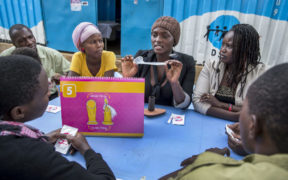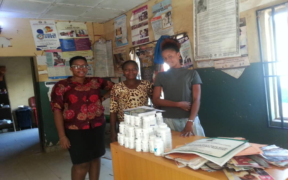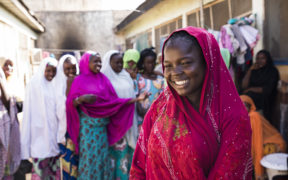Home

Knowledge SUCCESS, FP2030, Population Action International (PAI), and Management Sciences for Health (MSH) have partnered on a three-part collaborative dialogue series on universal health coverage (UHC) and family planning. The first 90-minute dialogue explored high-level UHC commitments and specific UHC policies in several different contexts.

Likhaan is a non-government, nonprofit organization established in 1995 to respond to the sexual and reproductive health needs of women experiencing poverty. It runs community-based health programs anchored on three strategies: community education and mobilization; provision of primary, integrated sexual, and reproductive health (SRH) care; and advocacy for rights-based and equitable health policies.

In August 2020, Knowledge SUCCESS embarked on a strategic initiative. Responding to knowledge-sharing needs expressed by adolescent and youth sexual and reproductive health (AYSRH) professionals, it established a robust global Community of Practice (CoP). It worked collaboratively with a group of AYSRH professionals to create the NextGen Reproductive Health (NextGen RH) CoP.

Association of Youth Organizations Nepal (AYON) is a not-for-profit, autonomous and youth-led, youth-run network of youth organizations established in 2005. It acts as an umbrella organization of youth organizations throughout the country. It provides a common platform for collaboration, cooperation, joint actions, and collective endeavor among youth organizations in Nepal. AYON is engaged in policy advocacy to create moral pressure on the government for designing youth-friendly policies and programs.

The South-East Asia Youth Health Action Network, or SYAN, is a WHO-SEARO-supported network that creates and strengthens the capacity of adolescent and youth groups in southeast Asian countries for effective advocacy and engagement in national adolescent health programs as well as regional and global policy dialogue platforms.

In Mombasa County, Kenya the Sisi Kwa Sisi program supports local governments to scale up high-impact best practices in family planning. The innovative peer-to-peer learning strategy uses counterpart coaching and mentoring to impart workplace knowledge and skill.

Parkers Mobile Clinic (PMC360) is a Nigerian non-profit organization. It brings integrated health care services, including reproductive health services, to the doorsteps of people in rural and remote areas. In this interview, Dr. Charles Umeh, the founder of Parkers Mobile Clinic, highlights the organization’s focus—tackling health inequality and overpopulation to improve population, health, and environmental outcomes.

In March of 2020 many professionals increasingly turned to virtual solutions to meet with colleagues, due to the COVID-19 pandemic. As this was a new shift for most of us, the WHO/IBP Network published Going Virtual: Tips for Hosting an Effective Virtual Meeting. While the COVID-19 pandemic showed us the power and importance of virtual meetings to continue our essential work, it also reminded us how important face-to-face interactions are for networking and relationship building. Now that virtual meetings have become a routine part of our work, many have shifted their focus to hosting hybrid meetings, where some people are participating in-person and some join remotely. In this post, we explore the benefits and challenges of hosting a hybrid meeting as well as our tips for hosting an effective hybrid meeting.






